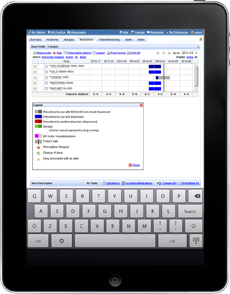Non-participation Bias in Health Services Research Using Data from an Integrated Electronic Prescribing Project: The Role of Informed Consent.
The current method of prescribing by writing is prone to error. These errors may cause health problems. Recently, the electronic prescribing system called MOXXI was developed and is now being tested. Most studies have reported improved patient safety. But, such benefits may be misleading. When patients who participate in the study have different characteristics (age, sex, income etc.) than those who refuse, a bias may occur. The results of the study may then be misleading.
How does this bias distort the study finding? Consider an example: a physician sees two patients. The first is a 75 year old male who is very sick. The second is a 35 year old female who is very healthy but has a bacterial infection. The first patient participates in the study, but the other does not. When the system is used it might look like it is failing to promote patient safety, due to the poor health of the first patient. However, this is not necessarily the case. Our goal in this study was to see if this bias was occurring in an electronic prescribing project and why.
Characteristics of those patients who participated and those who did not were very different. Older patients with health problems, higher income and more visits to the doctor were more likely to participate. It was also found that the doctors also play a role in trying to get the patients to participate. Doctors with less knowledge in technology and who see more patients were less likely to get patients to participate. Doctors who tend to see patients who are not their "regulars" were also less likely to get patients to participate. All of these factors can lead to bias in the results making the system look better or worse than it really is.


